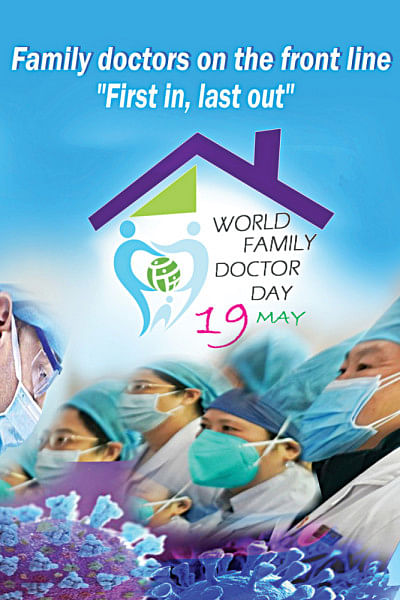On the Front Line of Providing Healthcare

The world is experiencing an unprecedented health challenge as the global coronavirus pandemic continues to spread. To date, it has spread rapidly in almost all countries in the world, causing the number of cases and deaths to increase exponentially.
While Bangladesh saw the first confirmed case on March 8, 2020 and the rate of infection stayed relatively low through March, we have recently begun to experience an increasing number of new cases and deaths. This pattern matches the experiences of other countries, where a slow start soon turns into uncontrollable upsurge. As we've seen in other countries, this can quickly overwhelm the local health system.
We are facing a significant challenge in combating COVID-19 with lack of access to quality healthcare. Due to insufficient resources and lack of coordination in health sectors, patients are struggling to get healthcare—both to manage COVID-19 but also for other chronic health conditions.
In general, in our country, almost 80 percent of the population still seek their first line of care from informal healthcare providers such as traditional healers or pharmacy owners. For that reason, during a pandemic situation, general people are facing tremendous suffering to get proper and adequate medical support due to a lack of strong primary healthcare delivery infrastructure. Evidence also suggests that patients often have to endure long delays to see the limited number of specialists for simple health issues with the risk of complicating the situations and over tasking the specialists.
Primary healthcare is the first level of care in the healthcare system and is also the first point of contact for those who seek any type of health services. In other words, primary healthcare is the backbone of any healthcare system. Since 1978, when WHO began its "Health for All" programme, it recognised that strong "primary healthcare" is the key to attain that. A family physician or a family doctor acts as a leader in the front-line of healthcare workers, who provide services to patients of all age groups, and genders. To highlight the role and contribution of family doctors, WONCA (World Organization of Family Doctors), first declared May 19 as World Family Doctors Day (WFDD) in 2010, which has been celebrated all over the world every year. This year WFDD's theme is: "Family doctors on the front line—First in, Last out".
A family doctor is a specialist physician, who is educated and trained in the discipline of family medicine. Worldwide, family medicine is also recognised as a distinct academic discipline which is imparted through structured residency training, concerned with the total healthcare of the individual and the family.
The need of the hour is to understand and incorporate in our healthcare system well-trained family doctors who may form the backbone of our healthcare system. As "Gate Keepers" at primary care facilities, they can improve the cost-effectiveness of healthcare delivery, during this pandemic situation and beyond. This COVID-19 pandemic health challenge has already shown in every country of the world—more in third world countries such as ours—that a well-planned strong primary healthcare delivery system with efficient family doctors working in the grass root level can effectively minimise the devastating health hazards of any outbreak.
So, in the present pandemic situation, the roles and responsibilities of family doctors as primary care physicians are manifold. They can easily maintain the triage at the front line by disease screening, providing telemedicine consultations, training the auxiliary healthcare providers, educating community people, guiding community leaders and assisting the public health authorities. They can act as a family friend and a healthcare advocate in this crisis situation, and can address mental health issues as well. They also can prevent unnecessary burden on hospitals in this resource constraint country of ours.
Dr Lt Colonel (Retd) Md Kabir Ahmed Khan, Consultant Family Medicine, Praava Health.

 For all latest news, follow The Daily Star's Google News channel.
For all latest news, follow The Daily Star's Google News channel. 



Comments